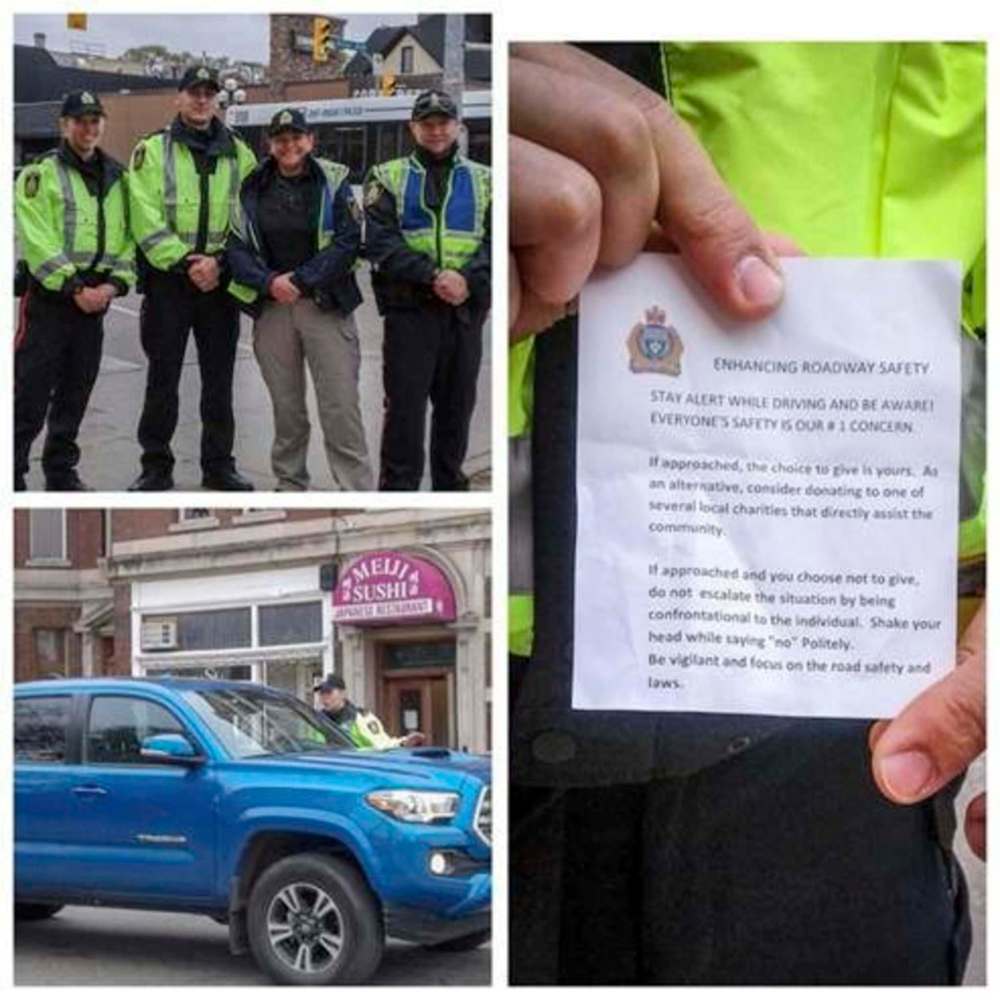Anti-panhandling initiative ‘misguided’, anti-poverty advocates say
Read this article for free:
or
Already have an account? Log in here »
To continue reading, please subscribe:
Monthly Digital Subscription
$0 for the first 4 weeks*
- Enjoy unlimited reading on winnipegfreepress.com
- Read the E-Edition, our digital replica newspaper
- Access News Break, our award-winning app
- Play interactive puzzles
*No charge for 4 weeks then price increases to the regular rate of $19.00 plus GST every four weeks. Offer available to new and qualified returning subscribers only. Cancel any time.
Monthly Digital Subscription
$4.75/week*
- Enjoy unlimited reading on winnipegfreepress.com
- Read the E-Edition, our digital replica newspaper
- Access News Break, our award-winning app
- Play interactive puzzles
*Billed as $19 plus GST every four weeks. Cancel any time.
To continue reading, please subscribe:
Add Free Press access to your Brandon Sun subscription for only an additional
$1 for the first 4 weeks*
*Your next subscription payment will increase by $1.00 and you will be charged $16.99 plus GST for four weeks. After four weeks, your payment will increase to $23.99 plus GST every four weeks.
Read unlimited articles for free today:
or
Already have an account? Log in here »
Hey there, time traveller!
This article was published 07/10/2019 (2259 days ago), so information in it may no longer be current.
Police officers encouraged motorists to donate to local charities, instead of giving change to panhandlers, in a day-long campaign to promote safety. Advocates say they accomplished the opposite.
On Friday, the Winnipeg Police Service sent a handful of officers in highlighter-yellow jackets to city intersections, to talk to motorists about the importance of staying alert behind the wheel. The officers gave out slips of paper encouraging motorists to “be vigilant” and focus on the laws of the road.
“If approached, the choice to give is yours. As an alternative, consider donating to one of several local charities that directly assist the community,” states the handout.

The slips also encourage people who do not want to give change to shake their heads and “say ‘no’ politely” to avoid escalating a situation.
Const. Rob Carver said the blitz was a new initiative, but the message from WPS wasn’t. Friday was an attempt to educate the public on a “safer, more effective option” than giving someone a handful of coins, Carver said.
“We know the bulk of people who are panhandling on the streets are often suffering from addictions issues and that, in our view, the least effective way of helping them is directly giving them money,” he said. “Plus, it encourages an unsafe activity where they’re right at traffic.”
Lorie English, executive director of the West Central Women’s Resource Centre, called the initiative “misguided and almost misleading.
“I think the question here is… whose safety are they looking out for? Because what this campaign will potentially do is put the most vulnerable people in our community in more danger,” English said Monday.
“We know the bulk of people who are panhandling on the streets are often suffering from addictions issues and that, in our view, the least effective way of helping them is directly giving them money.”
– Winnipeg Police Const. Rob Carver
If people are discouraged from panhandling, they will simply resort to other, more dangerous ways to find money, such as theft or sexual exploitation, said Lisa Spring, director of programs for the centre.
“It’s not a safety issue, it’s a poverty issue,” she said.
Chronic substance abuse is the product of complex trauma and a lack of access to non-judgmental support, she said, adding that should be the focus, rather than discouraging the practice.
Both women also questioned why police used resources to promote their message at a time when WPS has been vocal about its lack of resources and delayed response times.
“How is this benefiting those in that queue waiting for the police service?” English said. “That is an actual safety issue.”
Carver said the blitz took place Friday because WPS had some extra staff available based on scheduling.

Meanwhile, Lucille Bruce of End Homelessness Winnipeg said the city needs to launch more public awareness campaigns on panhandling. Her organization is in the process of working with the city to do just that, she said.
“We recognize that people have a right to panhandle, but we strongly want to send out the message to motorists to be very careful, because we don’t want to place people in unsafe situations, resulting in a possible accident,” Bruce said, adding it’s especially of concern when panhandlers walk across lanes to collect change.
“As long as people who panhandle do it in a respectful way, without threatening and harassing people, then people have a right to be able to earn a living.”
– Lucille Bruce of End Homelessness Winnipeg
As well, Bruce said there is a need to educate people on the fact panhandling is not a crime. “As long as people who panhandle do it in a respectful way, without threatening and harassing people, then people have a right to be able to earn a living,” she said.
When asked about the safety of officers standing on medians and handing out slips, Carver said officers are trained to work in traffic.
maggie.macintosh@freepress.mb.ca
Twitter: @macintoshmaggie

Maggie Macintosh reports on education for the Winnipeg Free Press. Funding for the Free Press education reporter comes from the Government of Canada through the Local Journalism Initiative.
Our newsroom depends on a growing audience of readers to power our journalism. If you are not a paid reader, please consider becoming a subscriber.
Our newsroom depends on its audience of readers to power our journalism. Thank you for your support.










